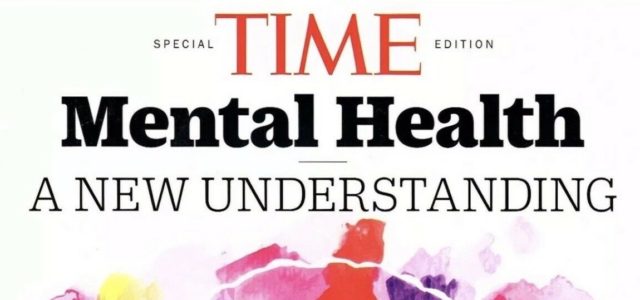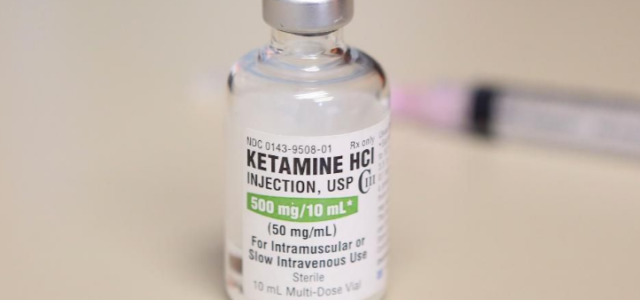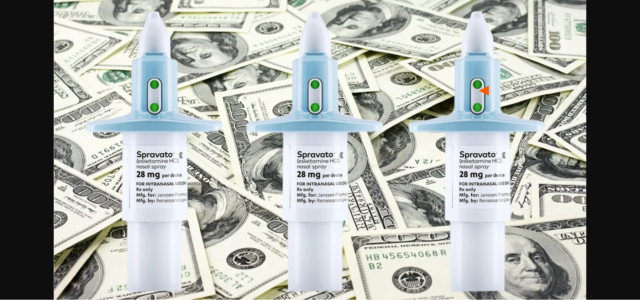Articles About Ketamine from Lori Calabrese, MD | The Ketamine Blog
Breakthrough anesthesia medicine proves life-changing for many who suffer from severe mood disorders.
In the last several years, a medicine began to emerge as a remarkable treatment for mood disorders. It was developed and FDA approved for anesthesia around 1970. Over 25 years later… it began to show its colossal hidden ability. What sort of ability? The power to relieve depression and other psychiatric disorders in a most dynamic way. Disorders like PTSD, bipolar depression, postpartum depression, addiction, social anxiety, and even eating disorders respond to this extraordinary treatment that involves a series of IV infusions. And perhaps the most remarkable of all, ketamine infusions can erase suicidal thinking in a few short hours. These articles about ketamine treatment are presented here to dispel stigma about psychiatric conditions and to give hope about treating them.
Early Testing was Cautious
Researchers tested it with trepidation 10-20 years ago. Then each study built upon the last. Their work revealed more insights about what actually causes depression, and how to treat it effectively. Never before has a medicine helped relieve symptoms in such a wide variety of people and their symptoms.
Researchers Still Learning All Ketamine Can Do
Ketamine works in multiple areas and systems of the brain. It improves the function of mechanisms that have been impaired by the stress of depression and anxiety. It helps the G proteins that pile up on lipid rafts in the cell membrane slide to off. This equips them so they can do their job enhancing signal transmission.
It also turns on the mRNA switch which in turn flips on DNA to build up brain-derived-neurotrophic-factor (BDNF). BDNF then causes synapse connections between neurons to proliferate in turbo mode, transforming and replenishing the connections between brain cells all around the brain, lighting it up with information, cognition, creativity, and insight.
There’s more that it accomplishes, like tamping down the cell bursting in the lateral habenula so you can experience the reward of pleasant moments. We don’t know what researchers haven’t discovered yet, but we look forward to hearing what’s next.
Ketamine Does More Than Bring Relief, It’s Transforming
The results of IV ketamine treatment are transformative. Those who have been weighted under a blanket of lethargic apathy and despair typically find they feel better and better after treatment. They often find they have the energy and motivation to dive into tasks they couldn’t face in recent memory.
More patients with treatment resistant conditions respond to ketamine than any other medicine available. It may sound odd, but the patients it helps the most are those who suffer the most from severe disorders. With continued research, neuroscience researchers and psychiatrists are learning methods of administration that help more and more patients enjoy a rapid and robust response,.
As a result, these individuals enjoy renewed hope. They express amazement at their energy for life and work, and an overall transformation in what they enjoy and are able to accomplish. They report a more balanced and joyful outlook, and the desire to rebuild and strengthen their relationships.
Ketamine is NOT for Everyone
With all the good IV ketamine treatment accomplishes, some people still don’t respond to it at all. The percentage of people who don’t respond is comparatively small, and we need to see more studies that can help explain why.
Why Ketamine Sometimes Doesn’t Work
There are others who have a significant response initially, then the response fades. One reason for that may be they have a deficiency of certain components in their blood. They may have a low folate level, or low testosterone, and some other deficiencies. In cases like this, sometimes replacing those nutrients helps that patient respond to ketamine treatment and experience resilience again. There are even cases where a patient’s blood levels are normal but the levels of certain components in their cerebral spinal fluid is low. By replacing that deficiency, the patient is able to enjoy a very positive and robust response to ketamine treatment.
Neuroscience is gaining knowledge by leaps and bounds in the 21st century. We hope to see more and more medicines that work as well as ketamine for those who have not yet been helped.
These articles about ketamine expand on those things we learn from neuroscience research in the labs, as well as those things we learn from research in our practice.

Treatment can help anxious moms relax and enjoy their babies. Jill was so excited to be pregnant. She’d waited for 4 years after she and Joe were married to start trying. She was just elated three months later when a home pregnancy test showed those two little lines. She was pregnant! Even the slightest thought of […]
Continue Reading

Obsessive-Compulsive Disorder or OCD is a term that is sometimes thrown around mistakenly. It’s sometimes used to describe someone’s careful behavior… you know, like careful organization, attention to detail, or a tendency toward cleanliness, which of themselves are actually normal behaviors. Many of us may be particular about these things without giving them a second […]
Continue Reading

If you struggle with bipolar disorder, and the symptoms that seem to dominate your life, it may help you to know that many psychiatric disorders don’t really come with a list of predictable symptoms. If you have times when you’re short-tempered, highly energetic, sure of yourself, and quick to argue, you may have a mood […]
Continue Reading

Time magazine recently offered a Special Edition on mental health… Did you see it? The article about depression treatment – and ketamine specifically – by Mandy Oaklander published in July 2017, was reprinted for this special edition. The title of the special edition is “A New Understanding”…but since the article Oaklander wrote is two years old, […]
Continue Reading

A new study finds that a nasal spray formulated from the anesthetic ketamine is a safe, fast-acting and effective treatment for treatment-resistant depression. Researchers presented the findings this week at the annual meeting of the American Psychiatric Association. Esketamine, the intranasal formulation of ketamine, recently received FDA approval as a depression treatment when used with an oral antidepressant, based […]
Continue Reading

Johnson & Johnson patented a form of the psychedelic with less research and a ridiculous price tag. In a popular and public move, the United States’ Federal Drug Administration recently approved intranasal esketamine, one of the components of the psychedelic ketamine, for treatment-resistant depression. The nasal spray costs nearly $900 per dose—or roughly $7,000 for the first month […]
Continue Reading

I just returned from the American Psychiatric Association’s 2019 Conference in San Francisco. This is the 175th Anniversary of the APA, and look how far we’ve come. The theme this year was: Revitalize Psychiatry – Disrupt – Include – Engage – Innovate. and it certainly provided fodder toward those goals. It was an informative and […]
Continue Reading

“Though I am often in the depth of misery, there is still calmness, pure harmony, and music inside me.” —Vincent Van Gogh May is Mental Health Awareness Month, and I’ve been thinking about how to disrupt the stigma of “mental illness.” It’s a term I don’t like – but it’s still used throughout the world, […]
Continue Reading

We celebrated Mother’s Day yesterday. What was it like for you? We truly hope you enjoyed a day of love and hugs as you celebrated with your children. But if you’re a mom who has lost a child, and especially if you’ve lost a child by suicide, this is a day that reminds you of […]
Continue Reading

Originally published in Brain & Behavior Magazine, July 2017 An important discovery has been made at the University of Pittsburgh. It raises the prospect that there may be an entirely new way of relieving major depression in people who repeatedly have failed to respond to existing treatments—people at elevated risk for suicide whose lives are often unrelentingly dark […]
Continue Reading









